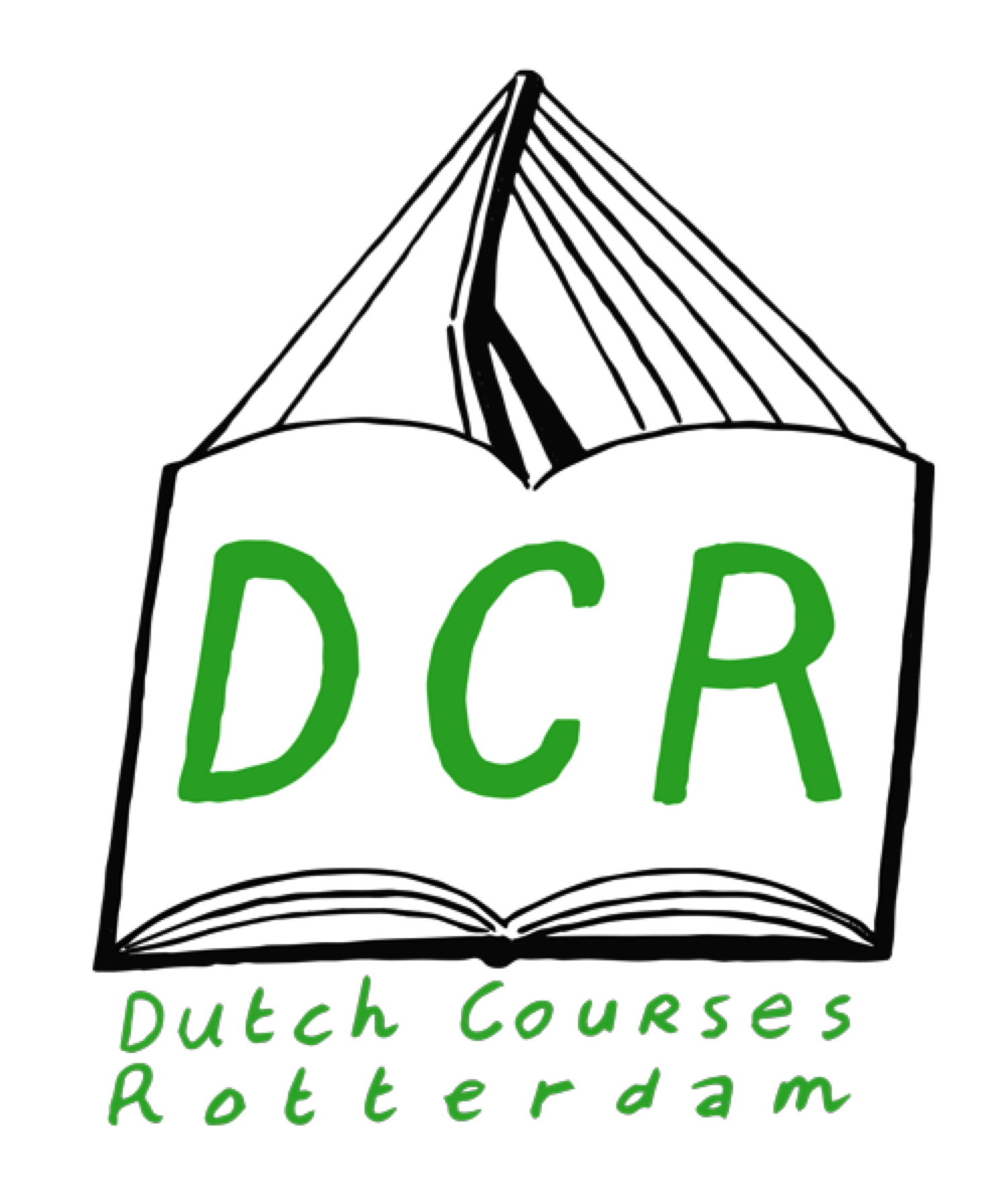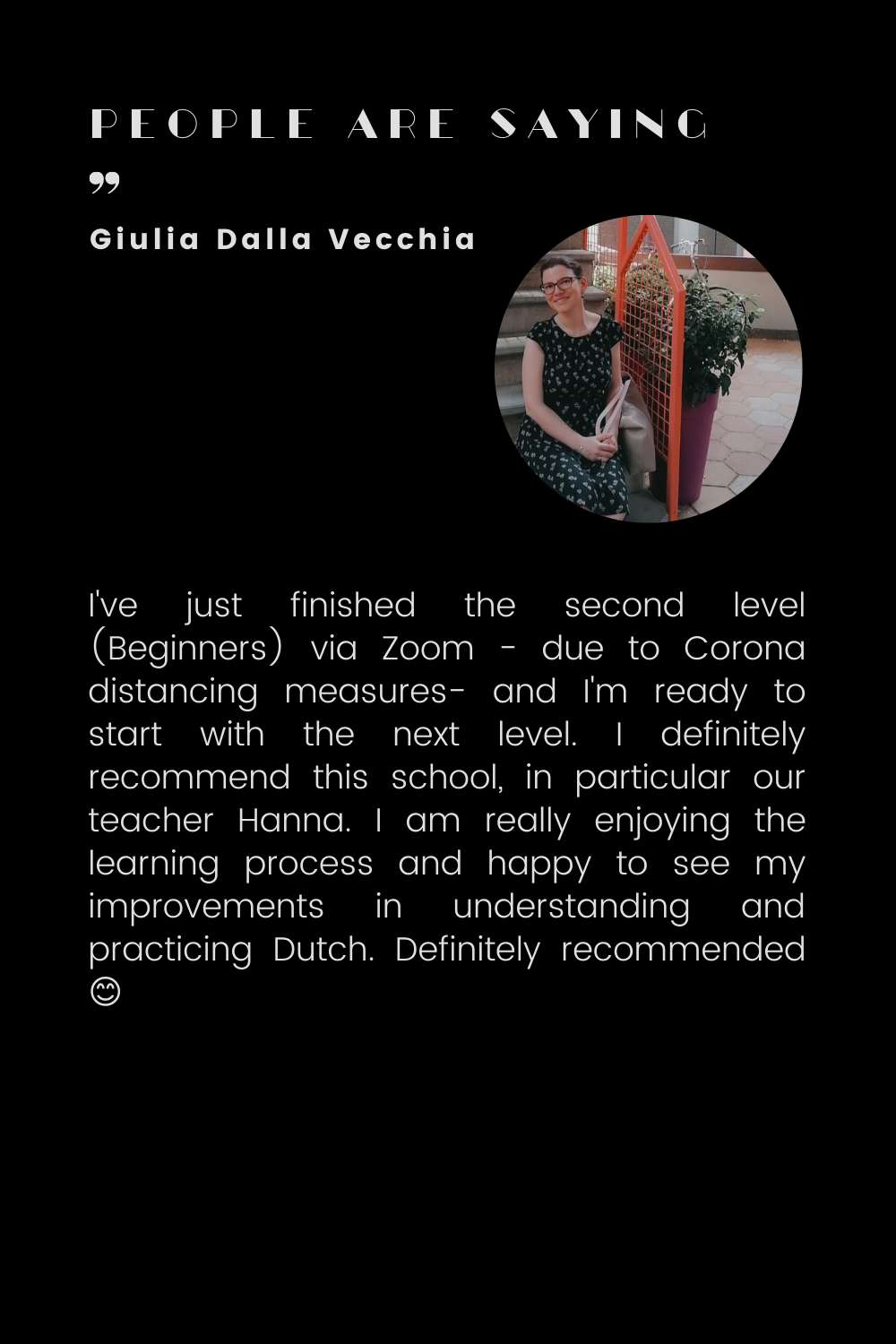Beginners
Dutch beginner group courses are offered at four levels:
Beginners 1 (A1)
At the end of this course:
You can introduce yourself.
You can understand and use familiar, everyday expressions and very basic phrases aimed at the satisfaction of concrete needs.
You can ask and answer questions about personal details such as where you live, what you do, where you are from and people you know.
You can have a basic conversation, if the other person talks slowly and clearly and is patient.
You can write a short text about your daily life.
You can talk about your daily life and answer basic questions.
You can listen to a basic conversation and get the most important information from it.
You can get the most important information from a short text.
Beginners 2 (A1+)
At the end of this course:
You can understand and use familiar everyday expressions and basic phrases aimed at the satisfaction of concrete needs.
You can buy products from the market or a shop and ask questions about it.
You can order food and drinks.
You can have a basic conversation in a store expressing your needs and understanding a salesperson.
You can describe houses.
You can have a conversation at the doctor’s and describe your symptoms to him/her.
You can name facts that happened in the past.
You can write a short text about the topics in this course.
You can listen to a conversation regarding the topics in this course and get the most important information from it.
You can get the most important information from a basic text regarding the topics in the course.
Beginners 3 (A2)
At the end of this course:
You can explain what is wrong with your bike and get it repaired
You can talk about situations in the past for, for example what you did as a kid (Als kind fietste ik elke dag naar school.)
You can talk about your job, studies, and hobbies, and ask other people about their job, studies and hobbies.
You can react adequately when someone has a birthday, new job, new house, etc.
You can ask and give directions.
Give your opinion and ask other people for their opinion.
Make small talk.
Make promises.
You can talk about sports
You can ask for information in a polite manner.
You can talk about your short-term and long-term future plans.
You can ask other people’s future plans.
Beginners 4 (A2.2)
At the end of this course:
You can ask and give advice.
You can buy a ticket at the cinema, understand and give information about the films.
You can talk about a trip or your holidays.
You can describe what you see in a landcape, photo, etc.
You can describe what you or someone else is doing.
You can talk about your activities on a normal day.
You can write a postcard from when you are on holiday.
You make a phone call to ask for information, order a pizza, etc.
You can report a crime.
You can describe an event that happened in the past in detail.



























